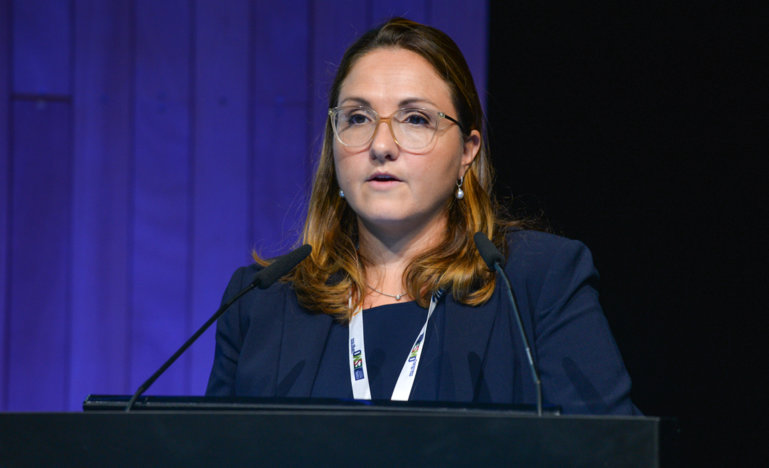ESMO Congress 2022

Durvalumab plus cisplatin/gemcitabine is now standard of care for patients with advanced/metastatic biliary tract cancer
Updated overall survival data from TOPAZ-1 confirm clinically meaningful benefit of adding durvalumab to cisplatin/gemcitabine

Second-line chemotherapy for advanced biliary tract provides modest efficacy but quality of life benefit
Standard second-line chemotherapy may benefit fit patients but efficacy is limited and new treatments are urgently needed

Final data from monarcHER suggest the utility of triple therapy over standard of care chemotherapy
Numerically improved overall survival was shown with abemaciclib plus trastuzumab and fulvestrant in patients with advanced breast cancer

Mixed results from the use of selective ER degraders and modulators in advanced breast cancer
These results highlight the need to better investigate the mechanisms of action, define the optimal timing of administration and identify predictive biomarkers

Phase I studies provide further data on the use of T-cell based therapies in solid tumours
Different approaches are explored, showing good efficacy and mixed tolerability, but further studies are needed to assess their feasibility

Building a lasting foundation for precision oncology
While local and regional initiatives address some major barriers, global efforts are needed to make molecularly guided options accessible to all patients.

The CXCR2 antagonist AZD5069 plus enzalutamide is shown to be active in mCRPC
In a phase I/II study, the combination treatment was tolerable in men who had progressed on one novel anti-androgen therapy

The ESMO Global Study on Access to Cancer Medicines shows stark global inequalities
The availability and affordability of a broad range of prescription cancer medicines have been analysed

Positive clinical results for immunotherapy in metastatic/recurrent cervical cancer
Results from two studies shows promise for combination immunotherapy in a population with a high unmet need for new treatments

Survival benefit in two trials of first-line immunotherapy in advanced hepatocellular carcinoma
Encouraging efficacy data with anti-PD1 antibody in combination or as monotherapy


